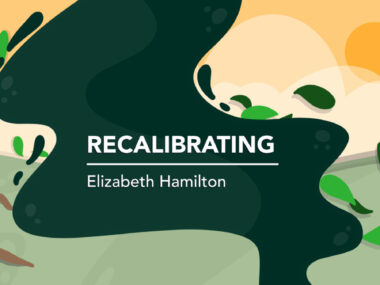My gratitude practice still matters even when I’m frustrated about FA
This Thanksgiving I am grateful for the people I’ve met on my journey
Written by |

I spent most of my day last Saturday picking things up, or rather, having my service dog, Wendy, pick things up. Exploding head emoji.
Even though sweet Wendy always wags her tail and is happy to pick up an object when we fail to transfer it from her to me, I was feeling grumpy and frustrated. I struggled to find anything to feel happy about. Frustration over my Friedreich’s ataxia (FA) symptoms dominated my thoughts.
I have a gratitude practice. At night in bed, I list three or more things I am grateful for in the journal app on my phone. If my husband isn’t sleeping, I do voice-to-text to speed up the process.
My gratitude journal
Usually, the list looks something like: Today I am grateful for 1) the beautiful blue and pink sunset; 2) laughing with Dave; and 3) my neighbor’s gorgeous Christmas lights (yes, they’re already up). Other things that make it onto the list include things like brownies, my nephew passing the bar, and my sisters listening to me whine.
Last Saturday night, however, my list read: 1) running water (it’s underappreciated, but for me, kind of a routine thing); 2) Wendy; and 3) my comfy bed.
I put things in my gratitude journal, but I wasn’t truly practicing gratitude. I didn’t thoughtfully appreciate those things. Mostly, I was practicing being pissed at FA.
That’s OK. Everyone has bad days. I can still keep up my very beneficial gratitude practice without feeling grateful every single day.
The benefits of being grateful
I recently wrote about gratitude and its benefits, and that research cited in Psychology Today shows that people who keep gratitude journals or regularly express thankfulness tend to be happier and have fewer symptoms of depression and anxiety. By cultivating gratitude, people build resilience against stress and manage emotional challenges better, making it an important tool for supporting mental health.
Research indicates the brain’s cerebellum plays a role in regulating emotions. FA causes our cerebellum to shrink over time. Therefore, it’s crucial to find ways to manage our emotions. A gratitude practice can help with that.
I am grateful this Thanksgiving
I have been thinking about what I am grateful for in my journey with FA. It’s actually a question I am asked regularly. So, today, I am thinking about it differently. I am thankful for all the big-hearted people I have met along my 40-plus-year journey with FA.
There are too many to list, but a few examples include:
- parents of children with FA who bravely put their hearts on the line to advocate not just for their child, but for every man, woman, and child with FA
- caregivers who wake up every morning to make life possible for someone with FA
- researchers tirelessly working to eliminate FA
- everyone who has contributed to advancing FA research
- people with FA who, despite experiencing many more symptoms than I do, stay joyful
- those with FA who ride their trikes up mountains to raise awareness and research funding for FA
- all the doctors, medical staff, Friedreich’s Ataxia Research Alliance staff, and biopharma employees
And many more. You all have big hearts, and I am grateful for you.
As I sat down to write this morning, I decided to text someone I feel grateful for. I hope it gave her a boost! It definitely made my day better. I recommend it.
Finally, I am grateful to you, dear reader. You’ve taken the time to read my little column. I hope it helps you feel seen or better understand life with FA. I hope you have an amazing Thanksgiving and find joys to be thankful for. If the holiday is difficult for you, remember that, in many places, there is running water.
Note: Friedreich’s Ataxia News is strictly a news and information website about the disease. It does not provide medical advice, diagnosis, or treatment. This content is not intended to be a substitute for professional medical advice, diagnosis, or treatment. Always seek the advice of your physician or another qualified health provider with any questions you may have regarding a medical condition. Never disregard professional medical advice or delay in seeking it because of something you have read on this website. The opinions expressed in this column are not those of Friedreich’s Ataxia News or its parent company, Bionews, and are intended to spark discussion about issues pertaining to Friedreich’s ataxia.




Elsje Zwart
Hello Jean and thank you. For some reason I decided to take a few minutes to read your blog. Thank you for the reminder of living life with gratitude, especially when things seem bleak. You are an inspiration and made my day. Happy thanksgiving. E + R